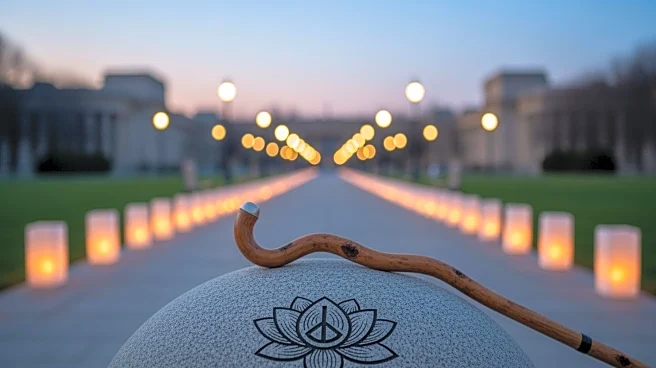What's Happening?
The International Olympic Committee (IOC) has decided to halt Indonesia's bid to host the Olympics following the country's decision to ban Israeli gymnasts from participating in an event. This move by
the IOC underscores the organization's commitment to ensuring that all athletes, regardless of nationality, are allowed to compete on the world stage. The president of Israel's Olympic committee responded to the decision by affirming that Israeli athletes will continue to participate proudly in international competitions. This development follows a series of events where political tensions have impacted sports, highlighting the challenges faced by international sporting bodies in maintaining neutrality and inclusivity.
Why It's Important?
The IOC's decision to freeze Indonesia's Olympic ambitions is significant as it reinforces the principle of non-discrimination in sports. This action could have broader implications for international relations and sports diplomacy, as it sends a clear message that political considerations should not interfere with athletic participation. For Indonesia, this decision could mean a loss of potential economic benefits and international prestige associated with hosting the Olympics. Conversely, it reaffirms the IOC's stance on inclusivity, potentially influencing other countries to reconsider similar actions that could lead to international isolation in the sports community.
What's Next?
Indonesia may need to reassess its policies regarding international sports participation if it wishes to revive its Olympic hosting aspirations. The IOC's decision could prompt discussions within Indonesia about the balance between political stances and international sports commitments. Additionally, other countries observing this situation might evaluate their own policies to avoid similar repercussions. The IOC will likely continue to monitor and enforce its policies to ensure fair play and inclusivity in future international sporting events.








